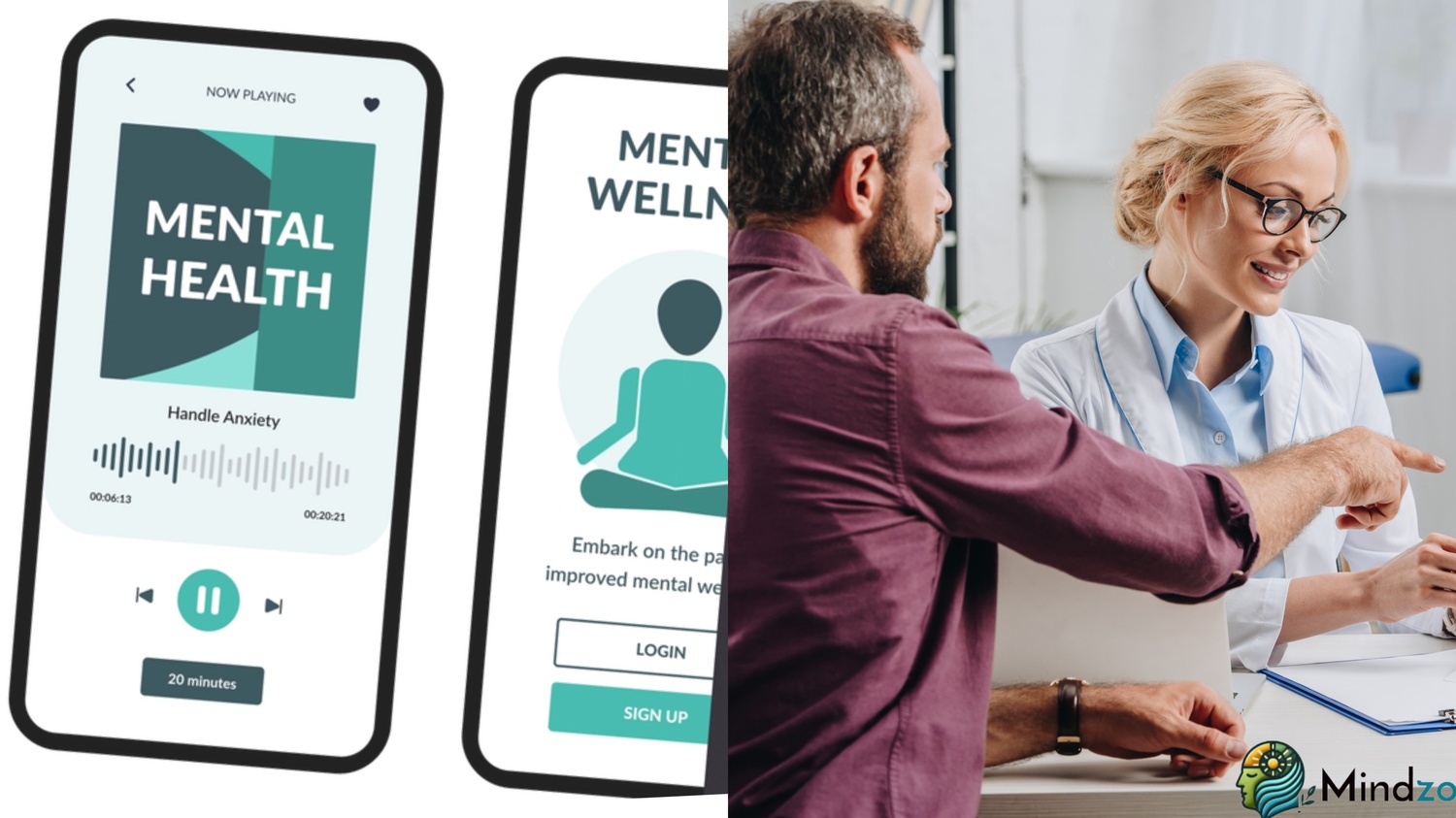Mental Health Apps vs Human Therapy: Finding the Right Balance

Mental health has become a critical topic of discussion in our modern society, and with the rapid advancement of technology, the way we approach mental health care is evolving. Mental health apps have emerged as a popular alternative to traditional human therapy, offering convenience, affordability, and accessibility. However, the question remains: can technology truly replace the human connection that lies at the heart of therapeutic healing? Understanding the strengths and limitations of both approaches is essential for making informed decisions about mental health care.
The Rise of Mental Health Apps
The mental health app market has exploded in the recent years, with thousands of applications claiming to help users manage anxiety, depression, stress, and other mental health conditions. These digital solutions promise immediate access to support without the traditional barriers of therapy, such as long waiting lists, high costs, or geographical limitations. From mood tracking to guided meditation, cognitive behavioral therapy (CBT) exercises to crisis management tools, these apps offer a wide range of features designed to support mental wellness.
Current scientific investigations reveal encouraging outcomes for evidence-based mental health applications. A comprehensive meta-analysis involving multiple randomized controlled trials with thousands of participants demonstrated that mental health apps delivered significant clinical improvements when compared to control conditions. The analysis revealed especially notable benefits for individuals experiencing depression, anxiety, stress-related conditions, and body image disorders. These research findings suggest that carefully developed and scientifically-grounded digital mental health tools can produce meaningful therapeutic improvements when implemented with proper clinical oversight and evidence-based design principles..
Advantages of Mental Health Apps
Accessibility and Convenience
The most significant advantage of mental health apps is their 24/7 availability and instant access. Unlike traditional therapy, which requires scheduling appointments and may involve waiting lists, mental health apps can be accessed whenever symptoms arise. This is particularly valuable during late-night anxiety phases or moments of crisis when traditional support systems may not be readily available.
The convenience factor extends beyond timing to include location flexibility. Users can engage with mental health apps from the comfort of their own homes, eliminating the need for travel and reducing potential barriers to seeking help. This convenience proves particularly valuable for people in remote or underserved communities where qualified mental health providers are in short supply.
Cost-Effectiveness
Mental health care can be expensive, and not everyone has access to insurance coverage for therapy sessions. Many mental health apps are free or available at a fraction of the cost of traditional therapy. This affordability makes mental health support accessible to a broader population, including students, low-income individuals, and those without comprehensive health insurance.
Reduced Stigma and Privacy
The anonymity provided by mental health apps can help reduce the stigma associated with seeking mental health support. For many individuals, the thought of discussing personal struggles face-to-face with a therapist can feel overwhelming or embarrassing. Apps provide a private, discrete way to begin addressing mental health concerns without the fear of judgment or social stigma.
Personalization and Data Tracking
Modern mental health apps leverage technology to provide personalized experiences based on user data and behavior patterns. Features like mood tracking, progress monitoring, and customized interventions allow users to gain insights into their mental health patterns and track improvement over time. This data-driven approach can complement traditional therapy by providing objective measures of progress.
Limitations of Mental Health Apps
Lack of Human Connection
The most significant limitation of mental health apps is the absence of genuine human interaction. Mental health treatment often relies on the therapeutic relationship between client and therapist, which involves empathy, understanding, and personalized responses that technology cannot fully replicate. Research consistently shows that people respond more strongly to interpersonal influences from live humans rather than automated technology.
Limited Evidence and Regulation
While some mental health apps show promise, the majority lack robust clinical evidence to support their effectiveness. Many apps make ambitious claims based on limited studies, user testimonials, or research that may not be applicable to app-based interventions. Unlike licensed therapists who must meet strict educational and ethical standards, mental health apps are not subject to the same regulatory oversight
Risk of Misdiagnosis and Over-Reliance
Mental health apps may encourage self-diagnosis, which can lead to inappropriate treatment or delayed professional care. Certain individuals may develop excessive dependence on these applications and delay pursuing essential professional treatment for severe mental health issues. For individuals with complex mental health needs, severe depression, suicidal ideation, or other high-risk conditions, apps alone are insufficient and may even cause harm.
One-Size-Fits-All Approach
Many mental health apps focus on treating single conditions and may not address the complexity of co-occurring mental health issues. Human therapists can assess multiple factors, consider individual circumstances, and adapt treatment approaches accordingly. Apps, by contrast, often provide standardized interventions that may not account for cultural, socioeconomic, or individual differences.
The Strengths of Human Therapy
Professional Expertise and Training
Licensed mental health professionals bring years of education, training, and supervised experience to their practice. They can conduct comprehensive assessments, make accurate diagnoses, and develop individualized treatment plans that address the unique needs of each client. This expertise is particularly crucial for complex mental health conditions that require specialized intervention.
Therapeutic Relationship
The working relationship between therapist and client represents a critical foundation for effective psychological treatment. This relationship provides emotional support, validation, and a safe space for individuals to explore difficult emotions and experiences. Human therapists can read nonverbal cues, provide immediate emotional support, and adapt their approach in real-time based on client needs.
Crisis Intervention
In mental health emergencies, human therapists can provide immediate intervention, safety planning, and coordination with emergency services. They are trained to recognize warning signs of suicide, self-harm, or other dangerous behaviors and can take appropriate action to ensure client safety.
Comprehensive Treatment Approach
Human therapists can address multiple mental health conditions simultaneously and consider the broader context of a client’s life, including family dynamics, trauma history, and social factors. This holistic approach ensures that treatment addresses not just symptoms but underlying causes and contributing factors.
Finding the Right Balance: Integration and Complementary Use
Rather than viewing mental health apps and human therapy as competing alternatives, the most effective approach may involve integrating both modalities to create a comprehensive mental health support system. This integrated approach can capitalize on the advantages of each method while addressing their respective weaknesses.
Apps as Therapeutic Supplements
These apps can complement traditional counseling by delivering intersession guidance, skill-building exercises, and persistent monitoring functionality. For example, mood tracking apps can provide therapists with valuable data about client progress, while CBT-based apps can reinforce therapeutic techniques learned in sessions.
Stepped Care Model
A stepped care approach can help individuals access the appropriate level of care based on their needs and symptom severity. Those with mild to moderate symptoms might begin with evidence-based mental health apps, while individuals with more severe or complex conditions can access professional therapy directly. This model ensures that resources are used efficiently while providing appropriate care for different levels of need.
Early Intervention and Prevention
Mental health apps can play a crucial role in early intervention and prevention efforts. By providing accessible tools for stress management, emotional regulation, and self-care, apps can help individuals develop coping skills before problems become severe enough to require intensive therapeutic intervention.
Making Informed Choices
When considering mental health support options, several factors should guide decision-making:
Symptom severity and complexity should be the primary consideration. Individuals with mild to moderate symptoms, those seeking general wellness support, or people wanting to supplement existing therapy may benefit from well-designed mental health apps. However, those with severe depression, anxiety disorders, trauma-related conditions, or thoughts of self-harm should prioritize professional human therapy.
Personal preferences and learning styles also matter. Some individuals may respond well to self-directed, technology-based interventions, while others may require the interpersonal connection and accountability that comes with human therapy.
Financial and practical considerations cannot be ignored. While apps may be more accessible initially, the long-term effectiveness and potential need for professional intervention should be considered when making cost-benefit analyses.
Last Word
The debate between mental health apps and human therapy is not about choosing sides but about finding the right balance that meets individual needs and circumstances. Mental health apps offer unprecedented accessibility, convenience, and affordability, making mental health support available to populations who might otherwise go without help. They excel at providing immediate support, tracking progress, and reinforcing therapeutic techniques.
However, human therapy remains irreplaceable for its depth of understanding, professional expertise, and therapeutic relationship. Technology cannot duplicate the emotional understanding, clinical wisdom, and tailored support that human therapists offer their clients.
The future of mental health care likely lies in thoughtful integration of both approaches, where apps and human therapy work together to provide comprehensive, accessible, and effective mental health support. By recognizing the strengths and limitations of each approach, individuals can make informed decisions about their mental health care and access the support they need to thrive.
Reference
- https://www.health.harvard.edu/
- https://pmc.ncbi.nlm.nih.gov/articles/PMC9505389/
- https://www.nature.com/articles/s41746-025-01567-5
- https://mental.jmir.org/
- https://www.nimh.nih.gov/
- https://pmc.ncbi.nlm.nih.gov/articles/PMC10785982/
- https://www.who.int/health-topics/mental-health
- https://www.sciencedirect.com/
-
 Beyond Words: The Emotional Medicine of a Simple HugOctober 27, 2025
Beyond Words: The Emotional Medicine of a Simple HugOctober 27, 2025 -
 Music’s Unique Therapeutic BenefitsOctober 23, 2025
Music’s Unique Therapeutic BenefitsOctober 23, 2025

Leave a Reply